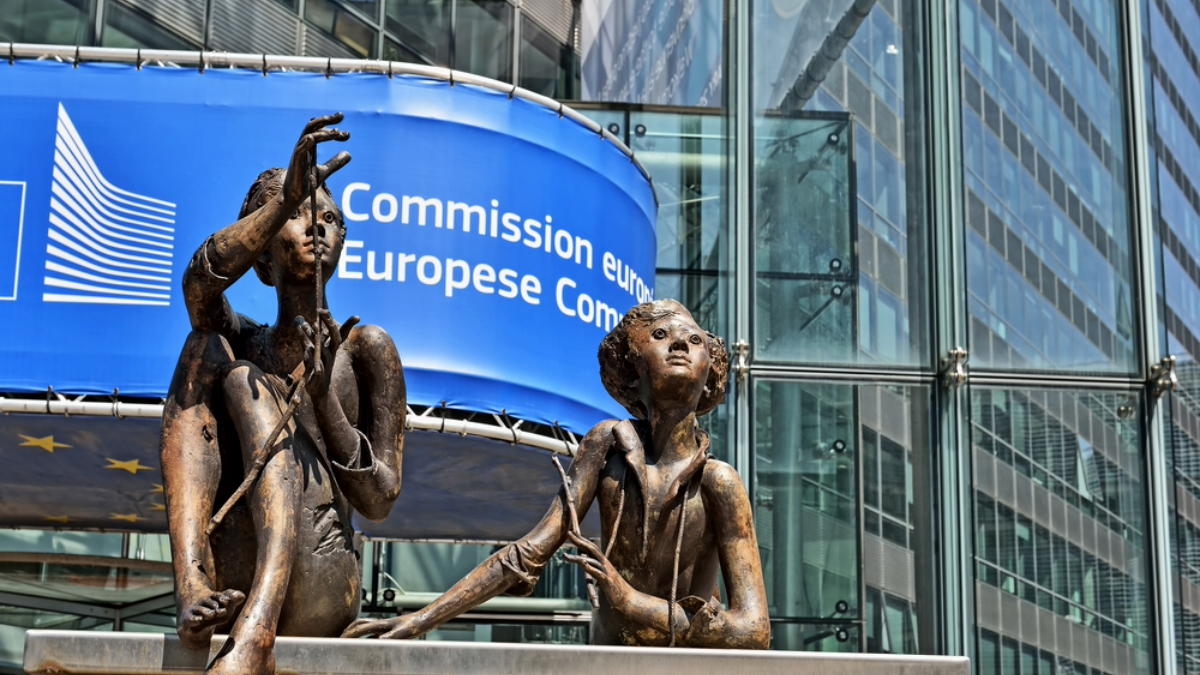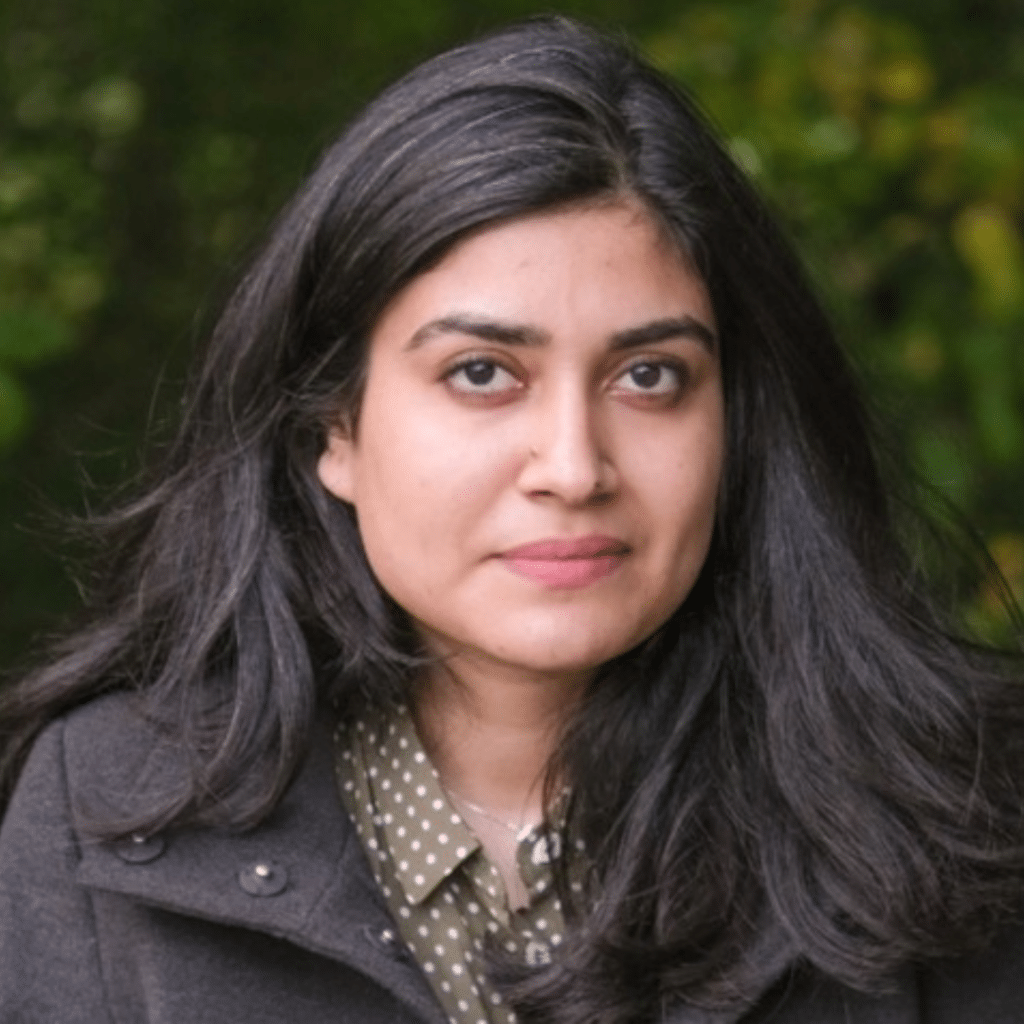Advocates and Researchers Set Up “Global Majority House” in Brussels to Engage on Digital Services Act
Ramsha Jahangir / Nov 14, 2024Ramsha Jahangir is a fellow at Tech Policy Press.

Office of European Commission in Brussels. Shutterstock
All eyes are on the European Union this month as the first risk assessment, risk mitigation, and audit reports under the Digital Services Act (DSA) are set to be released. With the world’s first legislation to mandate the largest online platforms and search engines disclose how they approach online content, Brussels has pushed the global discussion forward about the scope of transparency needed and the appropriate means to achieve accountability. But do EU regulators take into account the implications of their actions elsewhere?
Given the global significance of the DSA, a coalition of civil society and research organizations is setting up a “Global Majority House” in Brussels to ensure the implementation of the landmark legislation, as well as other digital regulations, is equitable and inclusive. The Global Majority House will serve as a dedicated hub for fostering critical dialogue and collaboration between the Global South and Europe on digital governance. This space will not only anchor their presence in Brussels but also allow these organizations to convene important discussions, host events, and hold meetings to build South-South and South-to-Europe relationships. So far, the Majority House is led by:
- Digital Rights Foundation (DRF), a Pakistan-based not-for-profit organisation that focuses on cyber harassment, data protection, and online freedom of expression.
- The Center for Studies on Freedom of Expression (CELE), a global research center based in Argentina, and affiliated with Universidad de Palermo.
- 7amleh, the Arab Centre for Social Media Advancement, which advocates for the digital rights of Palestinian and Arab civil society.
- WHAT TO FIX, a tech policy and accountability non-profit working to protect and promote internet integrity.
- The London Story Foundation, a diaspora-led civil society organization that advocates for justice, peace, and collective action against grave human rights violations.
- Citizens’ Association (CA) “Zašto ne (Why not),” which deals with the creation of a safe, healthy, active, efficient, and responsible society in Bosnia and Herzegovina and the Balkans.
- Myanmar Internet Project, established in 2022 by a collective of researchers, practitioners, and advocates with years of experience tracking developments in the Myanmar digital space.
“Whether the European model is eventually adopted elsewhere is not our main interest in entering these conversations. We are engaging in this conversation because Europe has the first-mover advantage to define concepts and set standards for a whole new generation of platform regulation laws,” said Agustina Del Campo of CELE.
The group aims to leverage specific opportunities within the DSA to advance their advocacy. For example, CSOs organizing for the Global Majority House said they were particularly interested in exploring the DSA's provisions on data access and complaints mechanisms to amplify their influence in Europe and ensure accountability measures represented concerns of the diaspora communities, such as moderation of minority languages.
“We hope to contribute to conversations on systemic risks and crisis protocols while engaging with the broader ‘Brussels effect’ to shape global standards that resonate with the values and realities of the Global Majority,” said Nighat Dad of DRF. Engagement with the Commission and national regulators, she added, will ensure that voices from the Global Majority are included in discussions and decisions that affect digital governance within Europe, fostering a more inclusive approach to addressing digital rights, equity, and systemic risks that arise from platforms which directly impact Global Majority communities.
With more global organizations wanting to engage with European processes, the group recognized the need to join forces to amplify their voices and ensure that the concerns and priorities of their communities were not overlooked. Many of these organizations represent regions that have been disproportionately affected by the negative consequences of platform dominance in the North, including data privacy violations, the spread of misinformation, and the erosion of free speech. “Having a strong presence in Brussels will allow us to hold big tech companies accountable under various provisions of the DSA and explore other strategies such as potential litigation under EU laws,” said Nadim Nashif from 7amleh, which recently published a new report titled: "Delete the Issue: Tech Worker Testimonies on Palestinian Advocacy & Workplace Suppression.” “We don’t have access to these regulatory tools in our regions. We want to ensure these tools are not politicized and represent the perspective of marginalized groups,” he added.
For organizations working from outside the capital of Europe, the DSA offers a framework to ensure the transparency and accountability of tech platforms and the participation of civil society in regulatory processes. “The Commission’s active engagement with EU candidate countries on DSA alignment is critical for us, especially on the scope of legislation and the provisions around the independence of DSCs and role of civil society,” said Maida Culahovic of Zašto ne, referring to the political use of laws in the Balkans. “There is always a risk of repressive governments trying to use these tools to silence critical voices, and our region is particularly wary of that,” her colleague Tijana Cvjeticanin added.
“There is so much happening in Brussels. For us, supporting the Global Majority House is a way to help organizations and human rights defenders who do not have a regular presence in Brussels (yet) be able to meet the right people on a more consistent basis and transfer our knowledge to policy discussions in Europe. For example, our reports on far-right social media actors in India resonate very well with similar issues being tackled in Europe,” said Ritumbra Manuvie from the London Story.
The Global Majority House partners emphasized their goal was not to replace existing civil society-led efforts in Europe but to establish a physical space from which to engage and help shape the tech policy agenda and bring their diverse perspective to Brussels with a nuanced approach. Given the global nature of technology, the partners said it was crucial to understand how actions taken outside of Europe could impact and inform the deployment and use of technology within the EU. Additionally, it was important to consider the global implications of European policies, particularly those with extraterritorial reach, to ensure they promoted democracy and human rights worldwide. “Systemic risks tend to manifest more severely and become apparent earlier outside of Europe,” said Victoire Rio of WHAT TO FIX. “We started raising alarm bells about the impact of unregulated ad revenue sharing on systemic risks in Myanmar 6 years ago. Europe is only just starting to acknowledge the existence – and impact – of these financial incentive structures and missed critical opportunities to tackle the issues with the DSA and DMA,” she said, adding that research conducted in these contexts could offer valuable insights to inform European discussions.
The group hopes to support cross-regional coordination by offering shared office space, combining their networks, enabling resource-sharing, and potentially providing lodging options for visiting representatives or fellows. “We plan to further socialize the initiative in Brussels in early December through a joint visit, where we aim to build connections, deepen understanding, and explore potential support, including funding, from stakeholders within the European Commission and other European entities,” said Nighat Dad.
“What unites us as a group is our shared commitment to direct participation and meaningful representation rather than any single policy issue. This diversity is a cornerstone of our initiative, which we believe will be a powerful asset in advocating for a truly inclusive and representative digital governance framework in the months and years to come,” said Dad.
Authors
